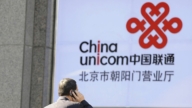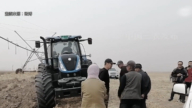【新唐人2013年09月12日讯】目前,中国大陆掀起一股海外购物潮。《华尔街日报》9月4号在报导中指出,大陆目前很多商品的价格远超其他国家,已经造成了越来越多的大陆消费者抵制购买。专家认为,造成这种价格差异的原因,除了大陆的高关税以及畸形的贸易政策之外,与大陆持续飞涨的物价也有很大关系。
近年来,大陆物价漫天飞涨,从“蒜你狠”、“油你涨”、“糖高宗”、“逗你玩”、“姜你军”,到“油不得”、“猪坚强”、“萍什么”等反应物价飙涨的新词迭出,百姓倍感生活艰难,深圳甚至出现了大量“港人回流”的现象,原因是深圳的物价竟比香港还要贵三成,令定居深圳的港人不堪负重。
中国经济学家左晓蕾曾写过一篇文章,题目叫《中国和泰国物价之比让人困惑》,她发现,中国一般消费品价格比泰国平均高出30%—40%。而法国等西方国家的商品价格也与泰国情况相同,比中国的价格便宜。
《华尔街日报》举例说,中国大陆消费者要花比美国人多近1美元,才能买到1杯星巴克拿铁。而“凯迪拉克”雷德6.0混合动力标准款汽车,在大陆要价22.9万美元,美国则仅售7.3万美元出头。一台iPad2基本款在大陆的售价是488美元,而在美国的价格是399美元。此外,大陆衣服和其他服饰售价,平均比美国贵70%。
美国“南卡罗莱纳大学”艾肯商学院教授谢田:“从中国到美国来的旅游者他们自己亲身发现,同样的东西在美国比中国的便宜,所以才会到美国来大肆抢购然后带回去。”
《华尔街日报》认为,造成这种中外物价差异的主要原因,是中国的高税负和进口关税,但有经济学者指出,更大一部分原因,则与中共当局制定的诸多不合理政策有关。
谢田:“在美国我很完善的交通运输系统,非常的有效率,也没有很多关卡,也没有很多苛捐杂税。中国我们也知道,在高速公路也好,其他地方也好,有很多过路费、过桥费,还有中国石油、汽油的价格也要高于美国。”
有些中国生产的产品,在美国销售时很便宜,在国内反而更贵,专家们认为这种现象与中国的外贸政策是有一定关系。
谢田:“这是跟中共畸形的贸易政策有关,中共实质上为了加大出口,为了赚取美金、赚取硬通货,实际上在以低于成本价,甚至低价倾销的方式向西方、向美国、欧洲来贩售。它们甚至用对外贸进行补贴的方式,让这些即使在中国出口公司不能赚钱的时候、他们可以因为补贴来继续进行运行、维持下去。”
美国经济专家谢田认为,当局采用的“补贴出口,出口赚汇”的方式,喂饱了中共权贵阶层,却苦了中国老百姓。
谢田:“因为首先,他们制造的产品,没有卖出很好的价格,被压价以后给卖出去了。第二,实际上中国赚到的外汇,都被中共给截汇、强制购买去了,变成中共权贵的资产,大部分留在海外。所以这个对中国老百姓来说是一种剥削。”
现在,越来越多的大陆消费者开始抵制国内贵的惊人的物价,利用互联网购物和出境旅游的机会,购买国外物美价廉的商品,于是各国街头出现了中国人疯狂血拼和扫货的一幕。尤其是今年,中国人去英国和香港,将婴儿配方奶粉一扫而空,更成为全球的头条新闻。
采访/朱智善 编辑/张天宇 后制/王明宇
Prices in China Exceed U.S. and U.K., Chinese Shop Overseas
Mainland China is seeing a upsurge in people shopping abroad.
The Wall Street Journal reported on September 4 that
prices of many commodities in China surpass other countries,
and it has led to more consumers boycott the purchase.
Experts believe the he price difference is caused by
high tariffs, deformed trade policy and soaring prices.
Prices in China have greatly increased in recent years for basic
things such as oil, sugar, fruits and vegetables, meats, etc.
People are feeling the hardship.
In Shenzhen, masses of people from Hong Kong are leaving,
as the prices in Shenzhen are 30% higher than in Hong Kong.
Zuo Xiaolei, a Chinese economist, wrote an article called
Confusion over China and Thailand’s Price Differences.
She found that consumer prices in China are generally
30%-40% higher than the average in Thailand,
which has prices on the same levels as France
and other Western countries, which are cheaper than China.
The Wall Street Journal states, Chinese consumers spend
nearly $1 more than Americans to buy a cup of Starbucks latte.
Cadillac’s Hybrid Escalade costs $229,000 in China,
but only $73,000 in the U.S.
An iPad 2 costs $488 in China, while in the U.S. it’s $399.
In addition, the price of clothing and other apparel in China
are on average 70% more expensive than in the U.S.
Xie Tian, Professor at University of South Carolina
Aiken Business School: “Chinese tourists to the U.S.
find it cheaper to shop in the U.S. than in China,
so they come abroad to shop."
The Wall Street Journal says the key reasons for price
differences are China’s high taxes and import duties.
Some economists say the more important reason is
the Chinese Communist Party (CCP) regime’s
many unreasonable policies.
Xie Tian: “The U.S. transport system is comprehensive and
efficient, with minimal hurdles or tolls.
There are all kinds of taxes and tolls in China.
Gas prices are also higher in China than in the U.S."
Some Chinese products are cheaper in the U.S. than in China.
Experts say it has to do with China’s foreign trade policy.
Xie Tian: “This is related to a deformed trade policy.
The CCP, in order to earn U.S. dollars, is selling goods or even
dumping goods in the West at lowered prices.
Even if they lose some profit, they’re given export subsidies
to support Chinese companies to continue with the model."
Xie Tian says the authorities use this export subsidy to benefit
themselves and CCP elites, but ordinary people suffer from it.
Xie Tian: “First of all, the products they manufacture
don’t sell at very good prices. Their prices are lowered.
Secondly, all of China’s foreign exchange earnings become
the assets of CCP officials and get stored overseas.
So this is actually a kind of exploitation of the Chinese people."
More and more Chinese consumers are now boycotting
China and it’s shocking prices.
They prefer shopping abroad online or traveling to shop.
Many countries are seeing Chinese people on shopping sprees.
It made world headlines earlier this year when mainland Chinese
were buying up baby formula in Hong Kong and the UK.
NTD Reporters Zhu Zhishan and Zhang Tianyu




























